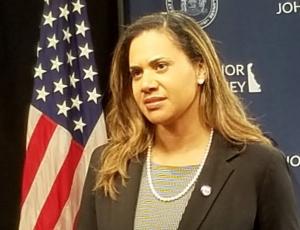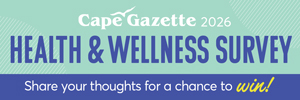During my years volunteering as a family doctor, I have provided care mostly in non-English-speaking communities and among vulnerable minority populations. I have seen patients from many backgrounds and circumstances walk through the door.
No matter the issue, I have seen concerned faces of patients not sure what questions to ask. I’ve seen parents with their young children, or grown children bringing in their aging parents, or people trying to do their best for themselves, their loved ones, and those around them.
No matter the day, health issues – big or small – are often paired with emotion and other critical needs, including housing instability, jobs, transportation, insurance, or lack thereof.
Each day in the clinics and in communities, I’ve made a point of addressing fears my patients have, whether around diagnosis, insurance, or cost of care.
And it makes sense today that patients have anxieties around the coronavirus - the virus brings with it a lot of questions, confusion, and emotional reactions.
Right now, I want to say to you, as a family physician: Our highest priority is your family’s health. And we will do everything to ensure you get the right care during this period of uncertainty. This is an extraordinary time, and we need to step up, and give extraordinary care to each other.
This means:
• Do not be afraid to call a doctor if you are showing symptoms of COVID-19.
• Do not be afraid if a doctor refers you for testing.
• Do not be afraid if your test is positive.
• And, most of all, do not be afraid if you or someone from your family needs medical care because the symptoms become severe.
I also want to say this as a state official, as cabinet secretary for the Department of Health and Social Services: We are all here - the state government and the medical community - to help you. We want you and your family to feel safe. You can and should feel safe reaching out for help, medical care, or other needs such as food, transportation, or supplies.
The situation with coronavirus is serious, and it’s increasing because this virus is very contagious. We are seeing cases climb in Sussex County especially. As of April 18, there were 2,538 positive cases in the state, 886 of which were in Sussex County.
Six deaths were reported April 18 by the Division of Public Health and half were in Sussex County, including a 51-year-old female long-term care resident with underlying health conditions.
In order to slow the rate of positive cases, we all need to work together, especially in support of those who are marginalized or live in poor communities where fear and stigma may keep them from asking for help. And that includes recognizing symptoms as soon as people begin to have them.
The symptoms of COVID-19 include a fever of 99.5 degrees or higher, a cough or shortness of breath. The additional symptoms we are seeing are a sore throat and body aches, and even intestinal distress.
If you have any of these symptoms, stay home and call your doctor. Take sick leave and please, please stay home from work. Urge your family to make a plan to keep themselves safe, too. If you don’t have a doctor, call 2-1-1, and we will find you care.
Do not wait until you are so sick to go to the hospital. Help is available for you and your family now. And this is critical: Please do not go to your local emergency room if you feel sick. If you have symptoms, you could infect others. It is important that we keep the emergency departments as free as possible to care for the sickest people. Dial 2-1-1 to seek proper care before going anywhere.
Because this virus is highly contagious, anyone who is infected - whether they know it or not - can spread it to two or three more people, so we all need to behave as if we already do have COVID-19. We want to keep our families and neighbors safe, especially those who have underlying medical conditions and are 60 and older. Our older family members and neighbors are there for us in good times, and they need us more than ever now to help them stay healthy and away from this serious virus.
Wash your hands often, maintain six feet of distance from others, clean commonly used surfaces, cough or sneeze into your elbow, wear a cloth covering over your mouth and nose if you cannot maintain social distancing in public such as at grocery stores or pharmacies, or at an essential business, and if you are sick, stay home from work, even if you work at an essential job.
We thank every one of our essential workers who are ensuring our basic needs are met – keeping the lights on, our water clean, our garbage disposed, our facilities clean, our food coming to the stores, our stores stocked and checkout clerks moving shoppers along, our construction projects moving, and our most vulnerable and elders cared for. Thank you to each and every one of you.
Thank you to everyone in our healthcare community working and sacrificing every day for all of us. We will get through this if we all work together. And, remember, we are here for you.
For any questions about coronavirus, please dial 2-1-1, or 7-1-1 for people who are deaf or hard of hearing.
Dr. Kara Odom Walker is cabinet secretary of the
Delaware Department of Health and Social Services, and is a practicing family physician.























































